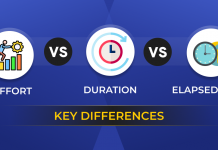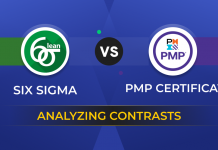
A business case is developed during the project initiation phase and maintained throughout the project phase. It captures all the necessary information for why a particular project has been initiated and the goals behind it.
If a business case becomes invalid during the project, then the project has to be closed. So, what is the importance of the business case in PRINCE2 methodology?
One of the principles of the widely-accepted PRINCE2 project management approach is that a project must have a continued business justification.
For instance, the business justification for establishing an additional service desk for an organization could be an expansion of capacity or disaster recovery, among other reasons.
In another example, the business justification for introducing mobile devices to take orders in a restaurant would be quicker, error-free service, and less paperwork.
The business justification is documented in the business case. The business case is an optimum mix of information that is used to ascertain whether the project is and will continue to be desirable, viable, and achievable and if it is worth the investment.
This document is to be actively maintained throughout the life of a project and should be updated with information on costs, risks and benefits on a continual basis.
Why PRINCE 2 Approach Needs Business Case?
According to PRINCE 2 methodology, no matter whether you are working on a small or big project, it should have a business case. Having the one for your project justifies your task throughout the process.
A business case for your project carries all the essential information from the project framework to roles and responsibilities to budget.
The core purpose of having a business case is to judge whether the project is viable and achievable. None of the projects should get started, until and unless it has a business justification.
Having a business case in the project will help to carry out the task effectively. You will have a defined goal, objectives, and a valid reason supported to start the project. Every project has a budget constraint within which the project needs to be completed.
If you happen to stick at any phase during the project, take a look at the business case for further reference.
A business case comprises the following aspects to consider during a project lifecycle:
- Project summary
The project summary outlines an overview of the project and essential elements related to it.
- Business justification
Business justification gives a reason for project initiation and should be valid until project completion.
- Project framework
The project framework defines the processes used in the project.
- Project goal
Every project needs a goal to accomplish.
- Performance measures
Essential measures are taken to analyze the performance of the project.
- Time and budget
This phase defines the budget constraints and time phase for project completion.
Moving ahead, in this article on ‘Importance of Business Case in PRINCE2’, let us explore the criteria to be followed when designing a business case.
Criteria to be Followed while Putting Together a Business Case
- The reasons driving the project should be consistent with the corporate or program strategy.
- The Project Plan and the Business Case should be aligned with each other.
- The benefits of the project must be clearly identified and justified.
- How the benefits will be realized should be clear.
- The definition of a successful outcome should be clear.
- The preferred business option and why it has been chosen should be clear.
- The preferred sourcing option, in the case of external procurement, should be clear.
- The means of obtaining necessary funding should be clear.
- Non-financial, as well as financial criteria, should be included.
- Operations and maintenance costs and risks and project costs and risks should be included.
- The Business Case must adhere to the accounting standards of the organization.
What needs to be included in a Business Case?
- Executive Summary
The executive summary is the leading section of the business case. It’s a short summary of what is included in the project. It is advised to write this section when you are clear about the project. A few of the readers just go through this section, so ensure to include all the relevant aspects.
- Reasons/Introduction/Project definition
This is considered the biggest section of the business case and is targets stakeholders, project teams, and project sponsors. It answers all the queries about your project.
- Business Options
- Problem statement/definition
This section involves problem statements and also demonstrates how problem-solving is essential to the organization.
- Problem analysis
This section provides more detailed insight into the problem.
- Discuss all the possible options
Once you identify the problem statement, come up with all the possible solutions to address the issues. For each option/solution you come up with, discuss the time scale, benefits, cost, and risks associated.
- Expected Benefits
- Expected Dis-benefits
- Timescale
- Costs
- Investment Appraisal
- Major Risks
- Recommendation
At the final stage, you should make appropriate recommendations regarding the best option considering the costs and benefits. Let us explore the significance of the business case in general for the rest of this article on ‘Importance of business case in PRINCE2.’
The Significance of the Business Case
- The Business Case is considered the driver of the project and documents its business justification.
- Project goals are tied to the requirements laid out in the Business Case which serves as a guide for decision-making.
- The Business Case is a justification for the initial investment in the project. The viability of the project can be ascertained while formulating the Business Case and the Project Board can take an educated decision regarding whether to act on the project based on this critical document.
- In the course of the implementation of a project, the Business Case serves as a checkpoint to ensure the project is still aligned with desired objectives and keeps processes on track.
- The Business Case is not a static document. It can be developed in greater detail and updated as the project progresses.
- By laying down integral aspects of the project such as timescale, cost, and major risks, the Business Case prepares the project team for the road ahead.
Thus, the Business Case and its development are one of the most important aspects of the Online Prince2 Training Course. By learning how to develop a strong Business Case, project management professionals can improve their contributions to the achievement of successful outcomes for their organizations.
I hope this justifies the importance of the business case in PRINCE2.














